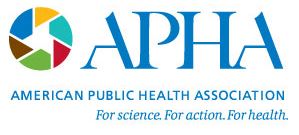Newswise — The American Public Health Association is sounding the alarm about the massive wave of mental health problems linked to the COVID-19 pandemic.
More than 60 million people in the United States live with mental or substance use disorders, according to the Substance Abuse and Mental Health Administration. Now, nearly half of Americans say the pandemic is harming their mental health. Calls to crisis hotlines are increasing by 1,000%. According to a new report released by Well Being Trust and the Robert Graham Center for Policy Studies in Family Medicine and Primary Care, more Americans are feeling scared, distressed, anxious, depressed and hopeless, leading to a possible increase of 75,000 deaths. APHA has long supported parity for physical and mental health and believes we need to pay attention now more than ever to reduce these deaths of despair.
“Right now, everyone knows someone who is struggling with mental health, if they aren’t struggling themselves,” said Lisa M. Carlson, president of APHA.
She said the public mental health infrastructure, which is disjointed and lacks cohesive planning, needs an overhaul. Mental health programs are underfunded, leaving less than half the people who need treatment able to receive it.
“Every time we talk about public health, we should be talking about mental health,” Carlson said. “They are interconnected.”
APHA, a Washington, D.C.- based organization with more than 25,000 health professional members and a nearly 150-year history, supports short-term steps necessary to address the current challenges related to COVID-19. At the same time, additional action is needed to ensure mental health and substance use health services are readily available to all Americans — regardless of their socioeconomic status, location or age — during and after this crisis.
The current shortage of mental health professionals along with the lack of enough clinics, training and education programs leaves many communities unable to access the care they need. Minority and disadvantaged communities especially lack access to mental health services and practitioners.
“This is indicative of the larger problem in public health. We’re not truly embracing public health as we ought to,” Carlson added. “We panic and make available some nominal support for public health, and public health does its job, so we defund public health, and we are back in the cycle again.”
APHA supports a variety of approaches to sustain well-being (mindfulness, yoga, deep-relaxation techniques) and in managing disaster-related distress, such as accessing Psychological First Aid or the national Disaster Distress Helpline. The organization reminds people it is also important to stay in touch with any support networks they have as well as use online tools. Carlson recently spoke out about the ways we can look out for our mental wellness, including tapping into the calming power of nature. One key is to maintain social connectedness while practicing physical distancing.
“These are challenging times for all of us,” Carlson said. “Help us bring attention to the urgent need to prioritize mental health supports for everyone and to address the perfect storm of the COVID-19 toll on physical and mental health alike.”
###
The American Public Health Association champions the health of all people and all communities. We are the only organization that combines a nearly 150-year perspective, a broad-based member community and the ability to influence federal policy to improve the public’s health. Learn more at www.apha.org.
